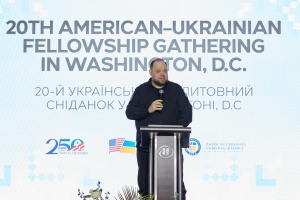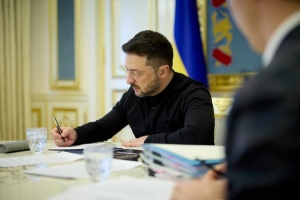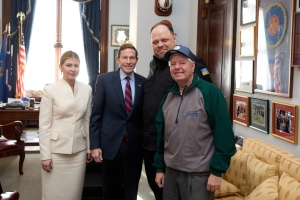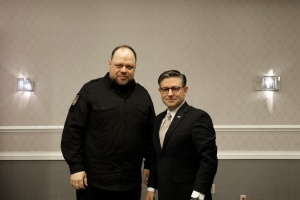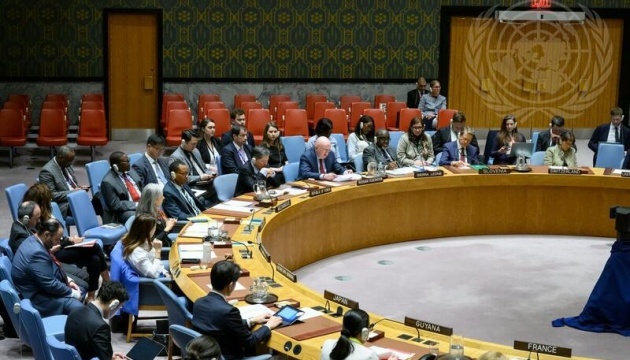
U.S. at UNSC: "Putin should take the deal" on an immediate unconditional ceasefire
“Ukraine is not the obstacle to a ceasefire…”
Two United Nations Security Council meetings on May 29 and 30 marked significant changes in the United States' rhetoric regarding Russia's war against Ukraine. Statements by Acting Deputy U.S. Ambassador to the UN John Kelley on Thursday, convened at Ukraine's request, and Political Adviser Anton Jongeneel on Friday—when Russia organized a "mirror" discussion on the situation in Ukraine—reflect a more candid and unequivocal assessment of Moscow's actions. Not only as an aggressor but also as the main obstacle to peace.
What the U.S. exit from negotiations would mean if Russia continues the war
Previously—since February this year—American diplomats typically called on both sides to cease hostilities, with State Department representatives avoiding definitive assessments of each side's role in derailing negotiations or blaming both.
Kelley, speaking at the Security Council on Thursday, indicated that "Ukraine has unequivocally" agreed to U.S. proposals for "an immediate, unconditional, and comprehensive ceasefire", awaiting "Russia's agreement to do the same."
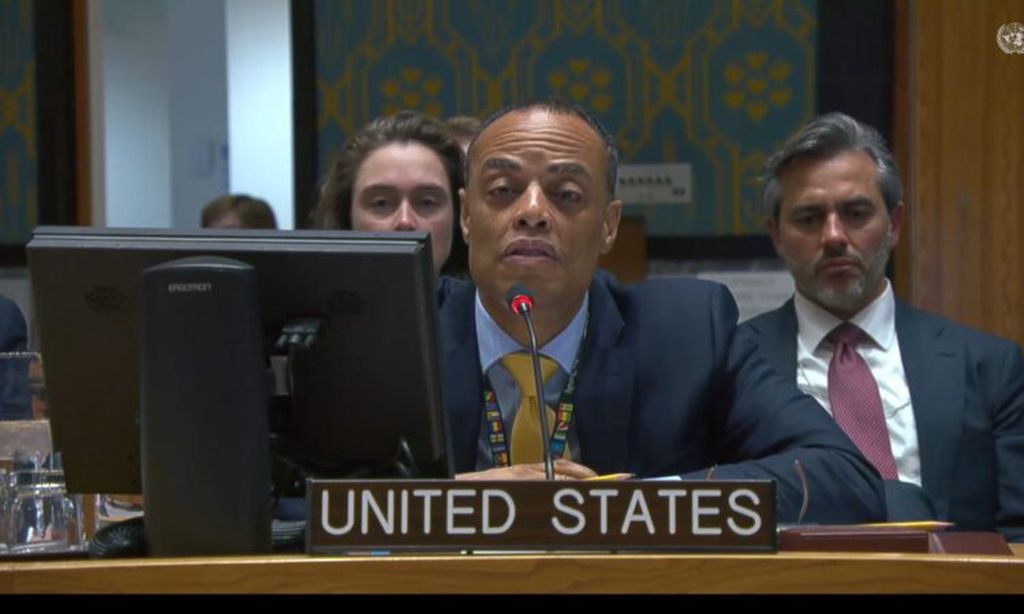
At the same time, he emphasized that Moscow's sincerity would be judged not only by documents but primarily by its actions.
The diplomat explained the often-repeated warning from Washington about the possibility of withdrawing from the negotiation process if Russia makes the "wrong decision" to continue the war.
"To be clear, in doing so, we are not abandoning our principles or our friends. Rather, we are recognizing Russia's refusal to work with us toward a desirable outcome," he said.
Thus, the U.S. withdrawal is an acknowledgment of Russia's destructive position. According to Kelley, the U.S. is considering imposing additional sanctions. We can assume that these words contain a warning to Moscow about the readiness to continue supporting Ukraine and to increase pressure on the aggressor.
This is also evident from President Donald Trump's words, who stated that within two weeks it would become clear whether Russian ruler Vladimir Putin truly wants to end the war against Ukraine.
Kelley formulated the U.S. position very clearly: "Putin should take the deal" on an immediate unconditional ceasefire.
Additionally, echoing in diplomatic language Trump's harsher statements, the diplomat emphasized that the U.S. strongly condemns one of the largest airstrikes on Ukraine since the beginning of the war. "This disregard for human life does not demonstrate a desire for peace," he said.
Trump, as is known, previously said that "Putin has gone absolutely crazy," killing many people, and that the Kremlin leader is "playing with fire."
U.S.: Ukraine is not the obstacle to peace, Russia is
Political Advisor to the US Permanent Representative to the United Nations Anton Jongeneel, at the Friday Security Council meeting, in turn, noted, responding to numerous accusations from Moscow: "Every member of this Council understands: Ukraine is not the obstacle to a ceasefire that could lead to peace... It is the Russia. It is Russia that has rejected this call… Russia could be uninterested in peace and instead bent on achieving a military victory."
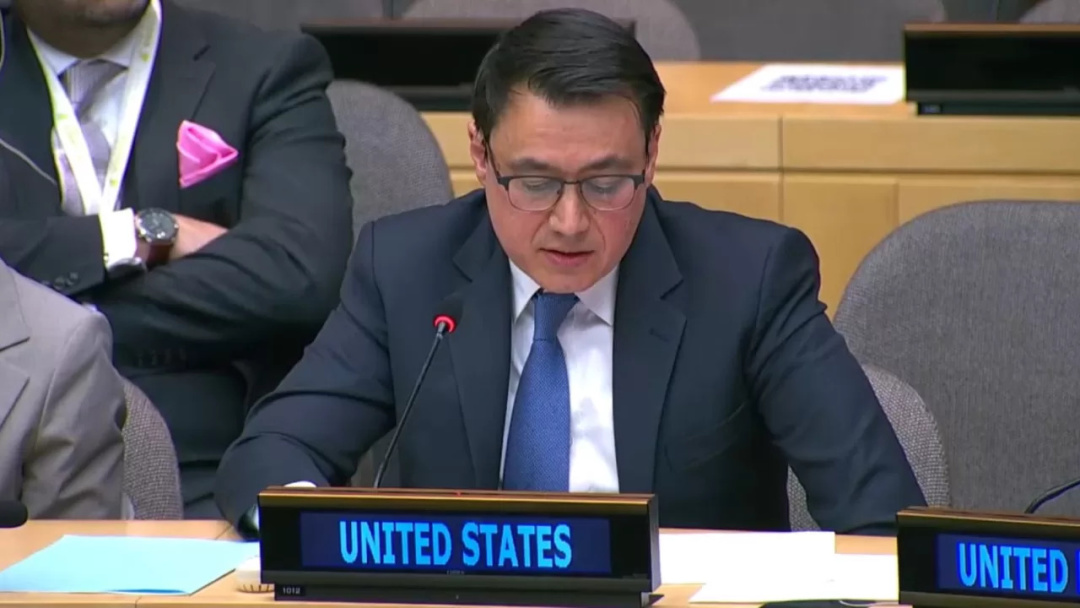
We can state that the caution in American diplomats' statements, driven by the desire not to harm the negotiation process, has shifted to direct accusations of Russia sabotaging the peace process.
Jongeneel pointed out to the Russian delegation the legality of supplying weapons to Ukraine. Moscow claims, he said, "that European countries, by providing assistance to Ukraine, are undermining efforts to restore peace. That is not the case. Ukraine, as a sovereign country, has the right to defend itself from aggression. Ukraine's fellow UN member states have the right to provide Ukraine with the means to do so."
One aspect of American criticism has never disappeared from Security Council speeches—regarding the involvement of Moscow's allies: North Korea, Iran, and China.
The U.S. traditionally accuses China of supplying Russia with technologies and dual-use goods, including drones, that "destroy Ukrainian cities and kill Ukrainian families." Jongeneel drew the Security Council's attention to numerous violations of Security Council resolutions by Russia, which receives weapons from North Korea and trains North Korean troops.
Thus, the U.S. perceives the war in Ukraine not only as aggression by the Russian Federation against a sovereign state but as an arena of global military cooperation among anti-Western regimes that undermines the world order.
Despite the strengthening of formulations and sharper tone, the U.S. still tries to demonstrate equidistance from the parties to the conflict. Obviously, again—to avoid harming the negotiation process, as understood in Washington.
Kelley, for example, called on "both Russia and Ukraine to make the difficult, historic decision to pursue peace." According to him, the responsibility for ending this war ultimately lies with both countries.
Jongeneel also voiced the often-repeated position: "The United States continues to stand for peace. It is not too late for both Russia and Ukraine to stop the fighting. We urge both sides to do so".
Thus, overall, the latest speeches by American diplomats indicate a certain rhetorical shift—from cautious neutrality and diplomatic "concerns" to direct accusations of Putin and Russia.
It seems that Washington increasingly doubts the possibility of dialogue with Moscow and sees it as the main threat to international security. But it leaves room for diplomacy.
Russia: We will fight as long as needed
Despite this, the Russian delegation at Security Council meetings continues to make complimentary equivocations towards Washington, including the U.S. among the countries that, along with Russia and Global South states, desire peace in Ukraine, unlike the "Russophobic" West, especially the United Kingdom and Germany.
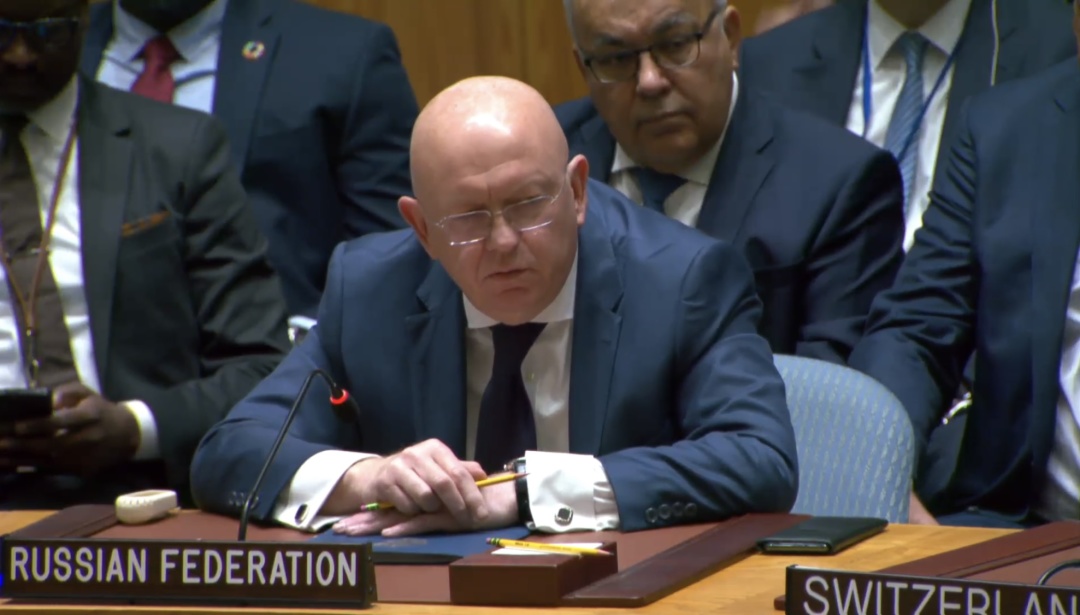
Speaking at the Russia-initiated meeting on May 30, Russia's Permanent Representative to the UN Vasily Nebenzia, true to form, resorted to lies and ultimatums. There was little new in his speech.
In particular, he voiced the Kremlin's position on a possible ceasefire, which actually makes it impossible.
Nebenzia stated that Russia "in principle is ready to consider the possibility of establishing a ceasefire regime," but on the condition that Western countries stop supplying weapons to Ukraine, and Ukraine halts mobilization.
These demands effectively mean the unilateral disarmament of Ukraine, which contradicts the principles of sovereignty and the UN Charter's right to self-defense.
Nebenzia declared that Russia's goals "can be achieved either militarily or peacefully," but added: "We will fight as long as needed."
These statements were called "a slap in the face to all who advocate for peace" by Ukraine's Foreign Minister Andriy Sybiga.
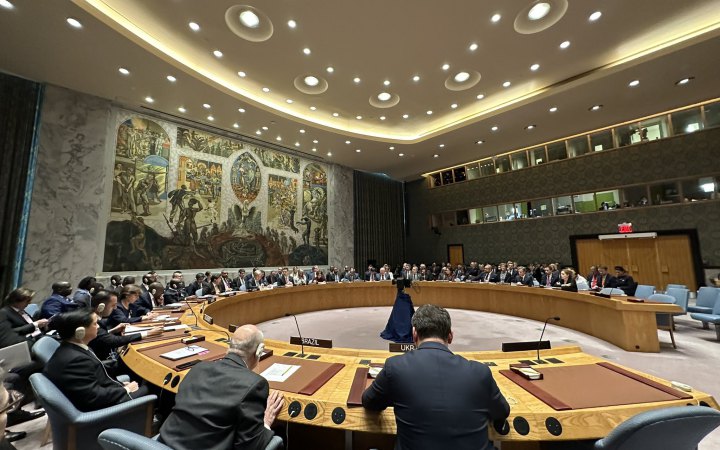
Washington's Position: Ceasefire Must Be Unconditional
Ukrinform asked First Deputy Minister of Foreign Affairs Serhiy Kyslytsya, who until recently served as Ukraine's Permanent Representative to the United Nations and is uniquely knowledgeable about the specifics of diplomatic processes within this structure, to comment on the changes in the rhetoric of American diplomats at the UN.
"Two consecutive statements by the United States in the Security Council show that their position is as clear as possible: the ceasefire must be unconditional and immediate," he noted.
Kyslytsya recalled that Ukraine has long declared its readiness to do this, but the Russian Federation in Istanbul categorically rejected the possibility of an unconditional ceasefire.
"It is also important that Washington, through its representatives in New York, stated: Ukraine is not an obstacle to establishing an unconditional ceasefire," emphasized the First Deputy Foreign Minister.
According to him, both American diplomats' speeches—on Thursday and Friday—are "important, particularly in the context of the expected meeting in Istanbul on June 2."
Kyslytsya emphasized that any statement made in the UN Security Council reflects the official position of the state, not a private opinion of the diplomat.
Volodymyr Ilchenko, New York
Headline photo: UNSC

